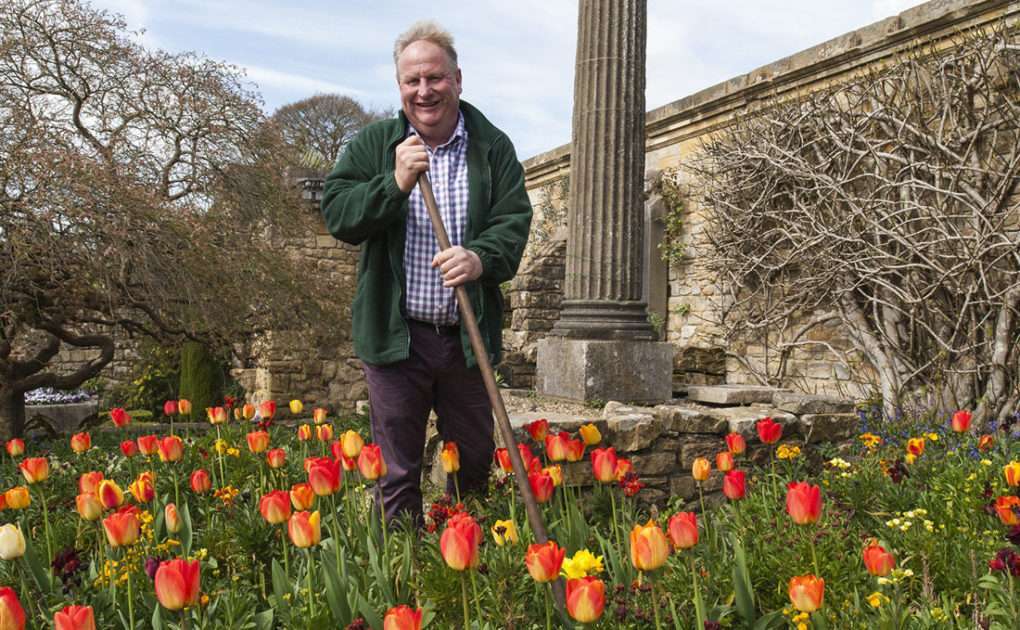

Credit: Leo Beiber
Plant health is just about the most important thing a budding gardener can learn. After years in the garden nurturing and learning from our successes and our failures, gardeners become kind of ‘plant doctors’!
This year in National Plant Health Week (from the 9th May) we are working with the RHS to encourage younger garden visitors to learn why plants are so important to our survival and what we can do in our own gardens at home to contribute to this important work nationally.
Plant Health Action have published a fantastic workbook called ‘Help Protect Our Plants with Izzy the Inspector’ and children are encouraged to look out for the symptoms of unhealthy or unwell plants – do they have spots, or holes or lines on their leaves that shouldn’t be there? The children can then get busy with the word searches, picture puzzles and activities that engage them in the idea of plant health. You can download a copy here.
Adults can get busy too and take notes form Izzy the Inspector who’s very keen on looking closely at leaves. It’s a really good idea to put your reading glasses on and take a closer look at the leaves of your plants in the garden – they’re a really good barometer for the health of the plants. If there are holes, discolouration, sores or spots then it’s time to give the plant a good health-check or a once over.
It’s useful to ask: have I over watered or under watered the plant? Is it in too much sunlight or not enough? And is the soil healthy? These three areas are absolutely key to plant health.
Plant blooms and fruit and vegetables are also great indicators of how well your plants are fairing health-wise. If your plant has underperformed with its flowers or fruit this can be a sign that the plants energy has been engaged in defending itself against a disease or is busy fighting a pathogen – have a good check of the leaves and of the roots.
If your roots are slimy and smelly then you’ve got a problem. It’s important to look at whether or not the roots of a plant have been immersed too long in water – causing root rot. If you have got a case of this then, remove the plant if you can, then allow the substrate to dry out completely before deciding whether to return the plant to this space or to find a better suited environment for it.
Another key to plant health is to be very conscious of where you have sourced your plants from. Years ago it was tempting to snap up a bargain at the market but these days it’s essential that you know exactly where your purchase hails from. Never accept plants that have been brought into the country ‘by friends’ or without the prerequisite plant passport.
There’s a particularly nasty plant disease called Xylella fastidiosa and it’s essential that we don’t have this here in the UK! In Europe it has attacked olive trees in southern Italy causing olive quick decline syndrome (OQDS). The Xylella bacterial disease can be carried by a huge variety of hosts – over 600 plant species can transfer it. Plant passports and strong regulations by HM government have helped to protect us so far, but it is present in Europe so it’s imperative that every plant lover knows about it, and about the guidelines in place so that we can keep it off our shores.
At Hever Castle & Gardens, we like to source our plants locally – for example, we use Rumwood Nurseries in Maidstone for our shrub roses, How Green Nursery for our perennials and we go to the fields of Lincoln for our tulips and daffodils. Our plants for a new reimagined woodland have come from Kevock Plants in Edinburgh and our famous Hever Rose comes from Peter Beales. It’s important to know where your plants have been grown – what their pedigree is. This way, you’ll have a better chance of providing life support for them once they’re planted in your own back garden nursery, ready to nurture and support them on their healthy journey.
Book your visit to Hever Castle & Gardens.
Within the grounds of the Hever Castle Estate, there are two opportunities for you to stay the night with us.
Hever Castle has played host to many important events and celebrations for over 600 years. In 1903 when William Waldorf Astor set about restoring Hever Castle to its former glory, he added the Astor Wing, to accommodate his family and guests, before creating a lake and the spectacular Italian Garden to house his impressive collection of ancient Greek and Roman statuary.
There are multiple places to eat & drink across the Hever Castle Estate. Select between the Castle & Gardens and Golf Club below to discover more.
Set in the mature grounds of the Hever Castle Estate, Hever Castle Golf Club is a 27 hole Kent golf course that will encourage and inspire all golf enthusiasts.
Set in the mature grounds of the Hever Castle Estate, the Wellbeing Centre consists of five smart treatment rooms.